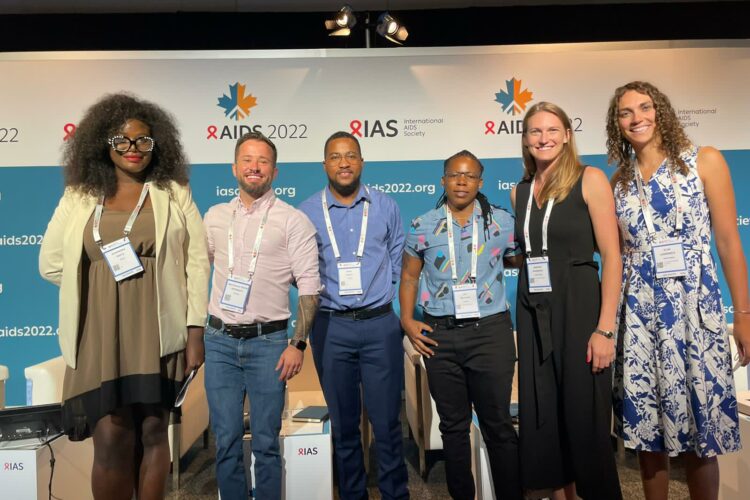Strengthening health systems
- KPLHS is a system where services are designed and delivered by key populations. It is a successful model: for example, 82% of PReP users came from KPLHS in Thailand.
- Community based antiretroviral program as well as mental health services – all provided by specially trained staff most of who are trans-identified proves to be successful in Thailand and are recognized by UNAIDS as a good model.
- Many countries create barriers to community-led service delivery models. Governments need remove these barriers and to move away from “community engagement” to “community leadership” in HIV response.
Decolonizing global health: Using intersectional feminist frameworks to transform the HIV response and inequality
- Indigenous populations are disproportionately affected by HIV in Peru which is due to discrimination, colonization, violence, sexual abuse, and devaluation of indigenous resources.
- Decolonizing healthcare through an intersectional feminist approach means giving everyone a seat at the table and enabling them to participate in the decision-making process, because there is no “one size fits all” solution. Women living with HIV have multiple and intersecting identities and different experiences. Intersectionality means that everyone needs to collaborate in designing HIV programs.
Evaluating adaptive HIV pre-exposure prophylaxis adherence interventions for young South African women: results from a sequential multiple assignment randomized trial
- Study was done in Johannesburg, in populations of young women. No significant differences between intervention arms or dynamic treatment strategies
- SMART design was feasible to explore differentiated stepped adherence support
- Individual level interventions likely insufficient to overcome structural barriers to PrEP for AGYW
Pragmatically approaching social network testing (SNT): using a peer-driven community outreach model to extend reach of HIV testing services (HTS) to networks of people who inject drugs (PWID) in Ukraine
- HIV Prevalence among PWID in Ukraine is 20.3%
- Results of the implementation program highlight the promise of using a peer-driven, SNT-based outreach model to tap into PWID users and their networks. Further expansion of this approach is vital to control the epidemic resurgence in Ukraine
Doing it Right: Inclusion, Diversity and Policy
In Eastern and Southern Africa, the trans inclusion on national HIV and AIDS strategic plans is increasing but there still is very few available data, despite the high levels of stigma and discrimination and the increased risk for HIV infection.
In March 2022, the review of national strategics plans (NSP) of 16 high prevalence countries analyses 5 key sections on narratives, epidemiological data, monitoring and evaluation, activities and budgets. The findings show that 69% of NSP mention trans people at least in one section. Yet, no country mentioned it in the budget section.
Trans communities call for their inclusion and disaggregation in data collection and analysis. They highlight that policies depend on population data provided by community-led researches and lobby in order to push governments towards the social change needed for trans people living with HIV. We should be the ones involved in providing.
Health concerns of transgender people not frequently addressed
Human rights and life expectancy of the transgender population in Latin America
Trans people in LATAM mostly lack equality and discrimination and social exclusion. Poverty rates have been high. The pandemic has escalated economic inequality particularly transgender women. Their life expectancy is 35 years old.
How to combine antiretroviral therapy with gender-affirming hormone therapy
- HRT is a comprehensive part of health. No studies assess HRT and Anti-retroviral therapy combinations. Doctors need to consider chemical interactions affecting estradiol for trans women, as well as cardiovascular risks.
- For trans men, it’s important to consider them as KPs, taking into account risk situations such as pregnancy and breastfeeding. Latin American countries mostly lack access to abortion and trans men are invisible in the conversations.
- There’s a lack of data that includes transmasculine people and HIV in Brazil.
Psychological wellbeing and healthcare continuum: Peer-based patient navigation intervention
- Peer navigators conduct group and individual sessions: topics include self awareness, pride, communication and transphobia, coping strategies and self-care.
- Peer-navigation improves the health of TG women, expanding contact networks, not only mental health but also human rights, social and cultural rights.
- There’s need for an intersectional approach considering race, sex work, and location.





